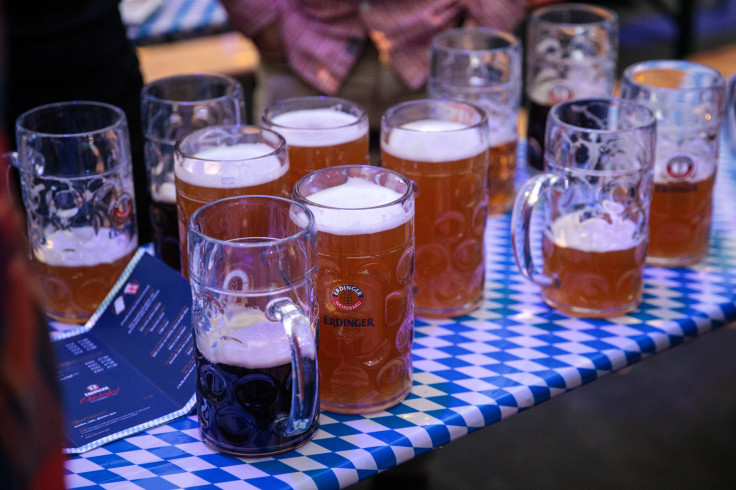Beer Can Be Converted Into Fuel, Scientists Say

Beer, one of the most consumed alcoholic drinks worldwide, may be the key component in creating another sustainable fuel, scientists discovered Wednesday.
Amid growing concerns about greenhouse gasses connection to global warming, it’s widely understood that there is a need to find an alternative to fossil fuels like petrol and diesel, which studies have linked to climate change.
Meanwhile, chemists at the University of Bristol in England were working to convert widely-used fuel called bioethanol, often blended with America’s gasoline supply, into a more sustainable source.
Ethanol, which is found in alcoholic beverages, is used worldwide as an alternative to petrol. But, ethanol on its own is not an effective fuel replacement and is known to corrode engines with its low density. A more effective fuel alternative is butanol, though it’s hard to develop from sustainable sources.
However, Professor Duncan Wass and his team, who have been conducting research at the University of Bristol, hope to change all of that. During tests, researchers successfully transformed pure, dry ethanol into butanol.
"The alcohol in alcoholic drinks is actually ethanol - exactly the same molecule that we want to convert into butanol as a petrol replacement," Wass said in a study published in Catalysis Science & Technology. "So alcoholic drinks are an ideal model for industrial ethanol fermentation broths - ethanol for fuel is essentially made using a brewing process. If our technology works with alcoholic drinks (especially beer which is the best model) then it shows it has the potential to be scaled up to make butanol as a petrol replacement on an industrial scale."
The ability to change ethanol to butanol is known as a catalyst, or a chemical able to accelerate chemical reactions, commonly used in the fuel industry.
Wass and his team just scratched the surface and aimed to elevate the process on a larger scale, which, based on previous trials, could take five years or longer.
"Turning beer into petrol was a bit of fun, and something to do with the leftovers of the lab Christmas party, but it has a serious point," Wass said. "Beer is actually an excellent model for the mixture of chemicals we would need to use in a real industrial process, so it shows this technology is one step closer to reality."
Beer is brewed worldwide and consists of several dominant companies. Over 35 billion gallons are sold per year, which has generated global profits of $294.5 billion in 2006.
© Copyright IBTimes 2024. All rights reserved.





















